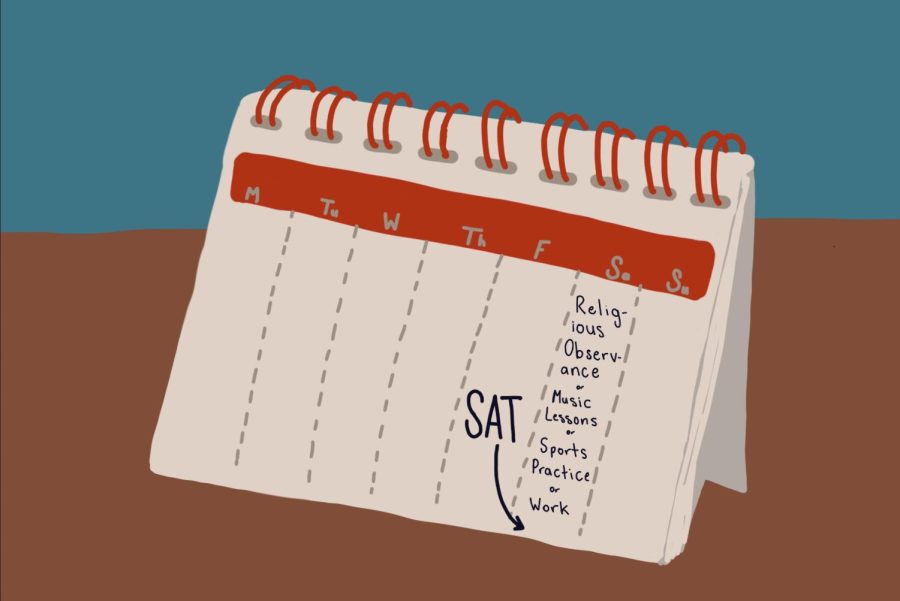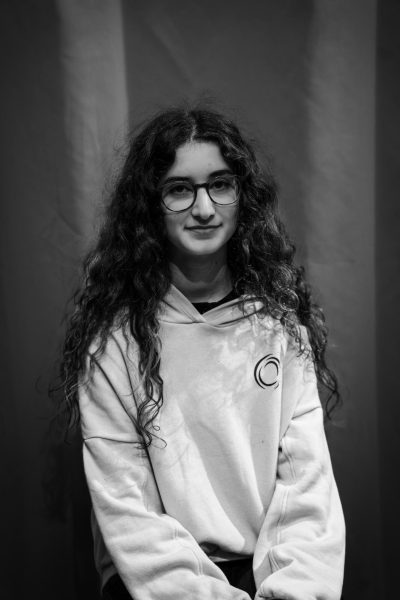With SATs Only Available on Saturdays, Students Are Hurting
January 15, 2023
Out of 130 CRLS students surveyed by the Register Forum, 71.5% take issue with the fact that SAT testing is only available on Saturdays.
Yet the current weekend SAT coordinator, Joshua Landwehr, didn’t initially consider holding CRLS testing on any other day. It’s a long-standing tradition, and students are able to apply for testing on Sundays instead. That being said, getting a religious exemption is difficult––College Board requires students to submit a letter signed by a religious leader, printed on stationery from their house of worship, which thoroughly explains the religious reasons for the request. CRLS students report that this process feels frustrating and unwelcoming.
Tal SebellShavit, advisor of the CRLS Jewish Heritage Club, believes there has to be a change. He’s already reached out to Landwehr, in an initial attempt to raise awareness, and plans to continue following up until the policy is altered. “This isn’t something where if we don’t get it to happen next year, we say ‘oops, we tried,’” SebellShavit told the Register Forum. “This is ‘what do we have to continue to do in order to make it happen?’”
Landwehr, in response to the issues raised, explained that while he sees problems with the Saturdays-only policy, he’s also worried about logistics—regular alternate testing days would require “paying the custodians, safety, and security staff.”
These costs are real, but the cost for Jews, who are disproportionately affected, is real as well. For those who practice, Saturday, or Sabbath, isn’t just a matter of going to temple or not. It is a strict prohibition against doing any labor. Since writing and erasing are included, observant Jews cannot take the SAT on Saturdays—not least because test-taking, in and of itself, is a form of work.
Religious reasons like these made Saturday testing impossible for Judith Epstein ’23, the co-president of the Jewish Heritage Club. The restrictive schedule “is just another aspect of the SAT that creates imbalance and inequity,” she said to the Register Forum. Epstein found the process of getting a religious exemption extremely complex. She had to call College Board months in advance, and couldn’t find her alternate testing site or date on their website. “It was a hassle,” Epstein said. “It wasn’t easy to acknowledge that letter.”
Restricting testing to any single day of the week can be difficult for other non-religious reasons as well. Intisar Chowdhury ’23, for example, would be sad to miss their Saturday music lessons. “It’s one of the only parts of the week that I actually look forward to,” Chowdhury said. “It means a lot to me.” Programs like music, sports, and jobs can be critical for paychecks and scholarships, as well as mental health.
For Jewish students and non-Jews alike, the testing is non-inclusive for a variety of reasons. Any policy that requires students to prove their religious identities has undertones of discrimination, and can leave many feeling unseen. “There are a lot of reasons why Saturdays may not be good for people,” SebellShavit said. “It just seems limiting for no reason.”
This article also appears in our December 2022 print edition.











